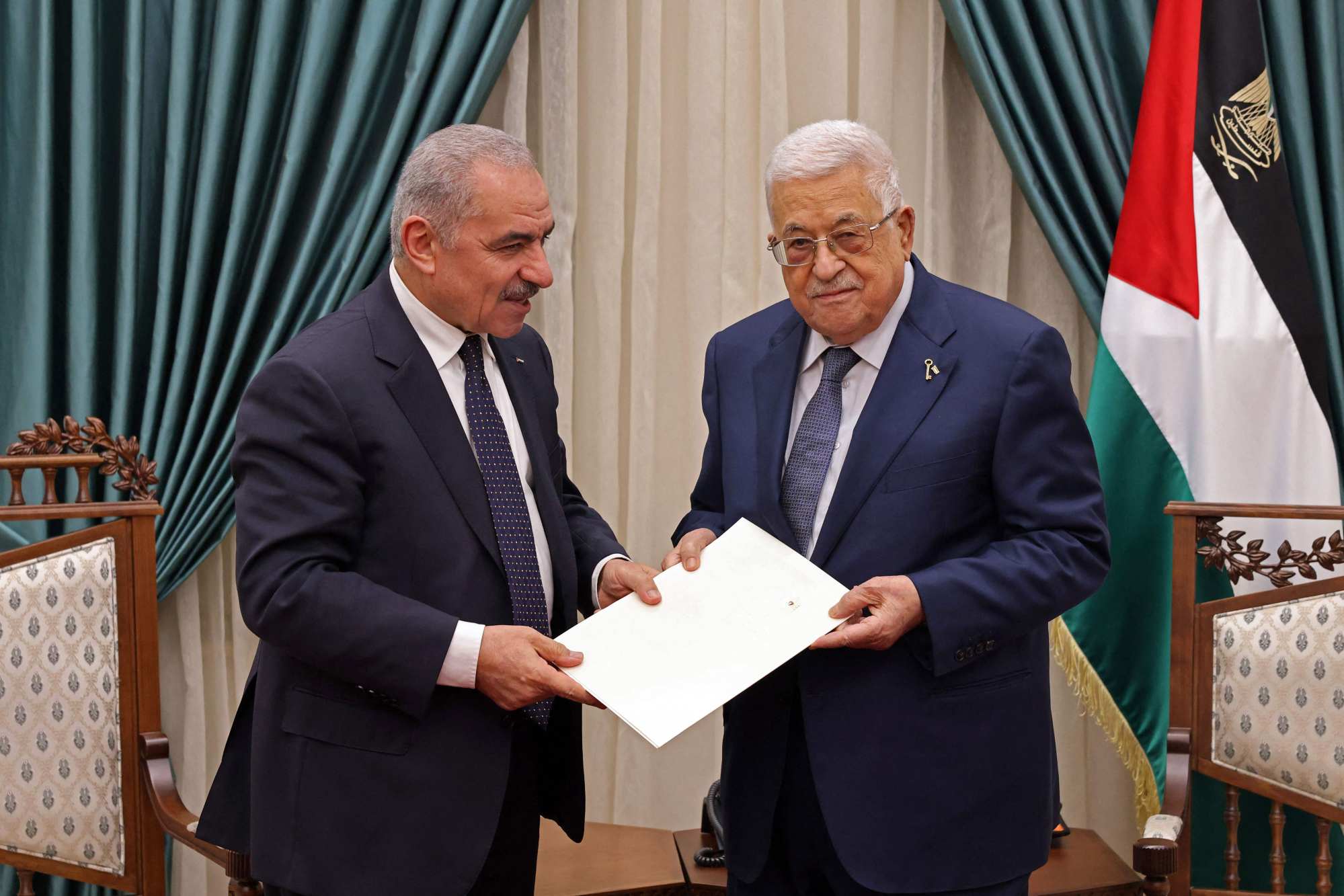
Palestinian Territories’ prime minister Shtayyeh resigns
- The move is seen as a step towards achieving peace in the Middle East by reforming the Palestinian Authority to govern Gaza once the war is over
- Shtayyeh, seen as a loyal collaborator of president Abbas, has been in power since 2005 and will continue to serve as head of a provisional government
Palestinian president Mahmoud Abbas reportedly requested the resignation following pressure from Arab countries in the region and the United States, according to a report by broadcaster Watan TV, which cited government officials. There had been reports of his resignation for some time.
Israel’s Netanyahu presents first official ‘day after’ plan for Gaza
Shtayyeh’s resignation is seen as a rather symbolic step, as it could open the door to the goal of a two-state solution – although many obstacles remain, including strong Israeli opposition.
The United States on Monday praised reforms by the Palestinian Authority.
“We do welcome steps for the PA to reform and revitalise itself,” State Department spokesman Matthew Miller told reporters, using the Palestinian Authority’s initials.
Miller said Secretary of State Antony Blinken had encouraged the Palestinian Authority “to take those steps” during talks with Abbas.
“We think those steps are positive. We think they’re an important step to achieving a reunited Gaza and West Bank under the Palestinian Authority,” Miller said.
He declined to comment directly on the resignation of Shtayyeh, saying it was an internal matter for Palestinians.

Shtayyeh, 66, who is considered a loyal collaborator of Abbas, 88, has been in power since 2005, and will continue to serve as head of a provisional government. The formation of a new government could take weeks or months.
Its success would primarily depend on whether the war in the Gaza Strip could be ended and an internationally supervised withdrawal of Israeli forces from the coastal area could be achieved.
The Palestinian Authority, under the leadership of Abbas, administers parts of the Israeli-occupied West Bank. The most important faction within it is the Fatah movement, which is also led by Abbas.
The militant Palestinian organisation Hamas, which is waging war against Israel in Gaza, is not a member.
According to the US, a fundamentally reformed PA is to administer the Gaza Strip after the end of the Gaza war.
Israel vehemently rejects this plan as it does not want to see either Hamas or a Fatah-led PA as the governing power in Gaza.
A possible future role for the PA also includes the formation of a technocratic government with people with no party affiliation. In these concepts,
Hamas would join the Palestinian umbrella organisation, the Palestine Liberation Organization without being represented in a future Palestinian government with its own ministers.
Singapore ex-president slams ‘degradation of soul’ as Gaza suffering continues
The Gaza war was triggered by the massacre carried out by Hamas militants and other extremist Palestinian organisations in Israel near the border with the Gaza Strip on October 7.
Since then, the situation in the West Bank has also worsened considerably. According to the Ministry of Health in Ramallah, 388 Palestinians have since been killed in Israeli military operations, confrontations or their own attacks.
There has also been an increase in settler violence against Palestinians.
Additional reporting by Agence France-Presse

